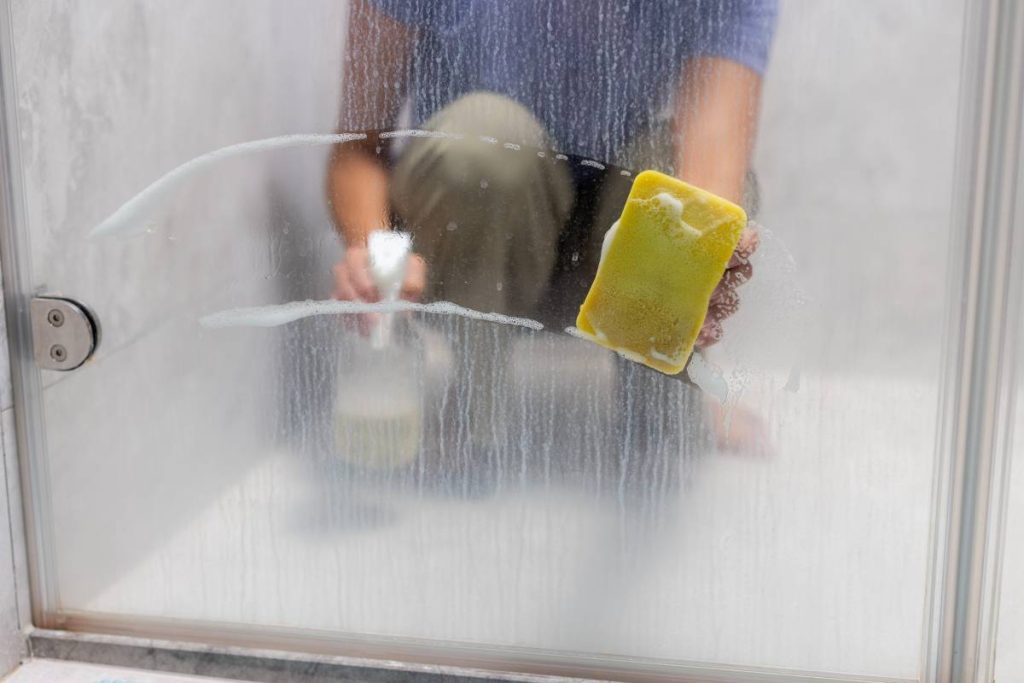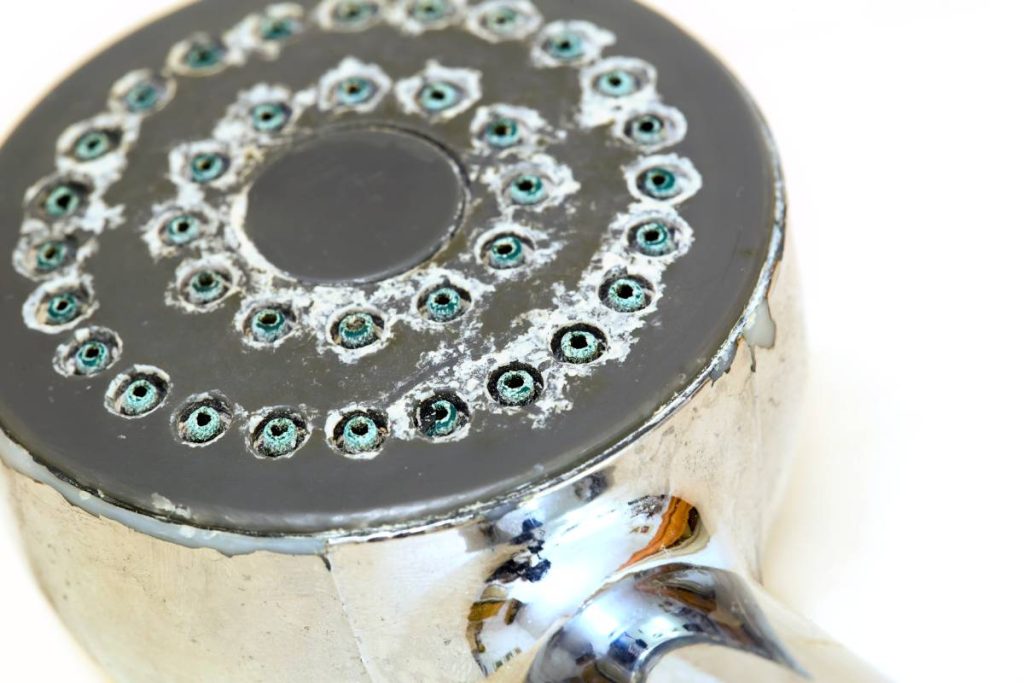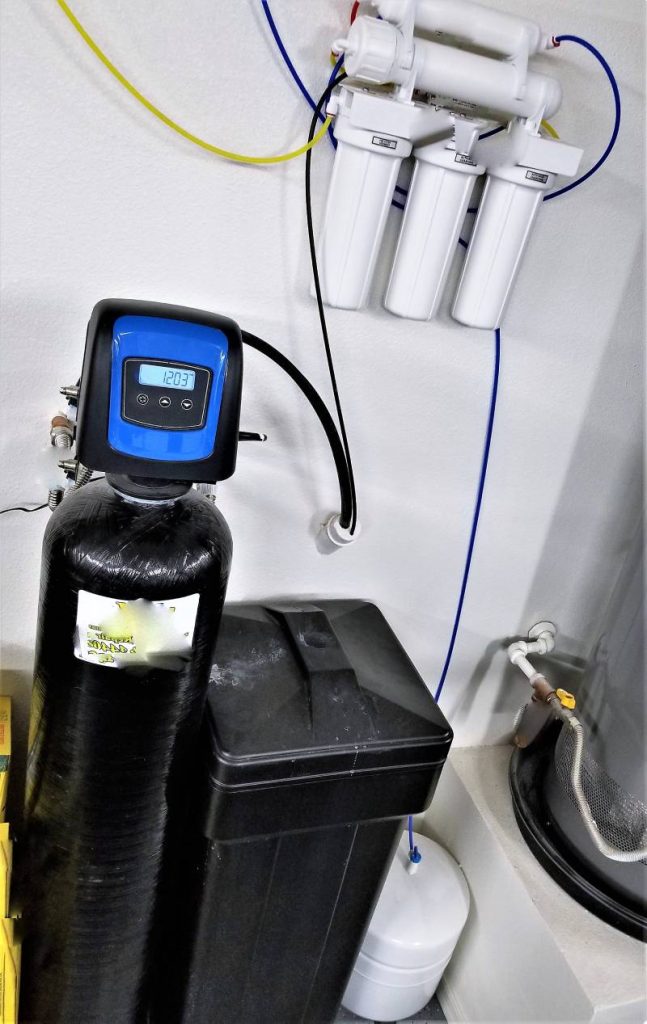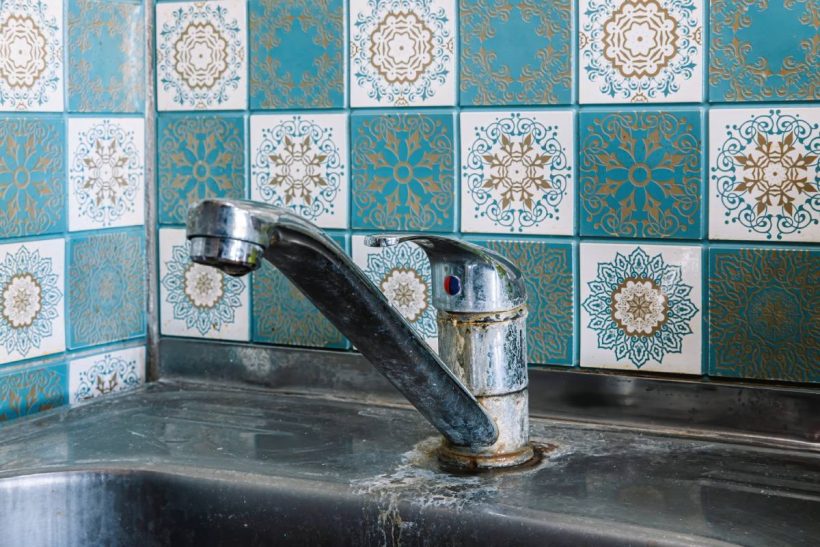Water is super important for life, but not all water is equal. In different parts of the world, lots of homes have to deal with hard water, which has a ton of minerals like calcium and magnesium. Even though these minerals aren’t dangerous for us, they can be a real pain for plumbing systems, appliances, and everyday tasks.
In this article, we’ll give you the lowdown on water softening and talk about four popular ways to deal with hard water so you can get your water supply back to being pure and efficient.
What is hard water?
Hard water is water that contains a high concentration of dissolved minerals, primarily calcium and magnesium ions. These minerals dissolve into the water as it passes through rocks and soil, picking up the minerals along the way. The degree of hardness can vary depending on the geographical location and the specific composition of minerals in the area’s soil and rock formations.

When hard water evaporates or is heated, the minerals can form scale deposits on surfaces like pipes, appliances, and fixtures, which can reduce their efficiency and lifespan. Hard water can also interfere with the lathering of soap, leaving behind a residue on skin and hair, and it may also affect the taste of water and beverages brewed with it.
To reduce the negative effects of hard water, water softening techniques can be employed, such as ion exchange, reverse osmosis, or chemical treatment. These methods remove or neutralize the mineral ions, resulting in softened water.
Is hard water bad?
Hard water itself is not harmful to your health, as the minerals it contains, such as calcium and magnesium, are actually essential nutrients that your body needs. In fact, some studies suggest that consuming hard water may contribute to your daily intake of these minerals.
However, hard water can cause various issues related to its effects on plumbing systems, appliances, and everyday tasks. The mineral deposits left behind by hard water can clog pipes, reduce the efficiency of water heaters and other appliances, and create scale buildup on fixtures and surfaces. This can lead to increased energy consumption, decreased appliance lifespan, and the need for more frequent cleaning and maintenance.
Additionally, the soap scum left behind by hard water can make it more difficult to lather soap, shampoo, and detergent, leading to potential skin and hair irritation and making it harder to achieve a thorough clean.
Overall, while hard water isn’t inherently harmful to your health, it can cause inconvenience and potentially costly problems in your home or workplace.
How do I know if my water is hard?
There are several signs that can indicate whether your water is hard:

- Soap Scum: Hard water tends to form soap scum or residue on surfaces like sinks, bathtubs, and shower walls. This scum is difficult to remove and may require more frequent cleaning.
- Scale Buildup: Look for white or yellowish deposits on faucets, showerheads, and other fixtures. This scale buildup is caused by minerals in hard water precipitating out as the water evaporates.
- Lack of Lather: Hard water can make it difficult to lather soap, shampoo, and detergent. If you notice that your soap doesn’t lather well or leaves a film on your skin and hair, it could be a sign of hard water.
- Stiff or Dingy Laundry: Clothes washed in hard water may feel stiff or rough, and colours may appear dull or dingy. Hard water can also contribute to the buildup of mineral deposits in fabrics over time.
- Water Heater Efficiency: Hard water can cause mineral deposits to accumulate in your water heater, reducing its efficiency and lifespan. If you notice a decrease in hot water pressure or if your water heater requires frequent maintenance, it could be due to hard water.
If you suspect that you have hard water, you can also have your water tested by a professional or use a home water testing kit. These tests can measure the concentration of minerals in your water and determine whether it is hard or soft.
How can I soften my water?
There are several methods you can use to soften hard water:

- Ion Exchange Water Softeners: Ion exchange water softeners are one of the most common and effective methods for softening water. These systems use resin beads to remove calcium and magnesium ions from the water and replace them with sodium or potassium ions. Periodically, the resin beads are regenerated with a salt brine solution to remove the accumulated minerals.
- Salt-Free Water Conditioners: Salt-free water conditioners use alternative methods, such as template-assisted crystallization (TAC) or chelation, to prevent the minerals in hard water from forming scale deposits. While these systems don’t remove minerals from the water, they can prevent scale buildup and offer a more environmentally friendly alternative to ion exchange softeners.
- Reverse Osmosis: Reverse osmosis (RO) systems use a semipermeable membrane to remove a wide range of contaminants, including minerals, from water. While RO systems can effectively soften water, they are typically used for drinking water treatment rather than whole-house water softening due to their lower flow rates and higher maintenance requirements.
- Magnetic Water Softeners: Magnetic water softeners claim to soften water by exposing it to a magnetic field, which is supposed to alter the structure of the minerals and prevent them from forming scale deposits. However, the effectiveness of these devices is controversial, and scientific evidence supporting their efficacy is limited.
- Chemical Water Softening: Chemical water softening involves adding chemicals, such as lime or phosphate compounds, to the water to precipitate out the calcium and magnesium ions. While this method can be effective, it requires careful monitoring and may introduce additional chemicals into the water.
Before choosing a water softening method, it’s important to consider factors such as water hardness levels, water usage patterns, budget, and environmental concerns. Additionally, consulting with a water treatment professional can help you determine the most suitable solution for your specific needs.
In summary
Most individuals can consume hard or soft water without experiencing any adverse effects.
However, elevated sodium levels in soft water might raise concerns for certain individuals, although this can be addressed by using a potassium-based softening system.
If you’re worried about the sodium content in soft water, an option is to drink bottled water while using soft water for laundry, dishwashing, and bathing at home.
If you’re considering softening your water, it’s advisable to research different options and consult with a plumber to understand how it might impact your plumbing system. Additionally, it’s important to be aware of the maintenance requirements of a water-softening system before making a purchase.










